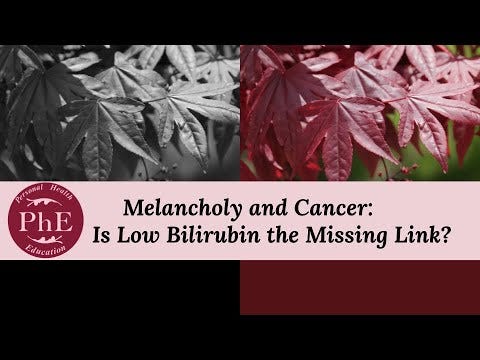I always thought of bilirubin as a cause of jaundice in hepatitis and in newborn babies, a byproduct of heme breakdown that better be detoxified and excreted.
And then I learned about Gilbert’s syndrome, a benign condition present in about 5-10% of Caucasians, who have a genetic polymorphism in the UGT1A1 gene, which lowers the rate of bilirubin detox in the liver. People who carry this mutation accumulate higher than average levels of serum bilirubin and tend to experience jaundice in times of stress or during fasting.
But they might have won a genetic lottery, because they have low incidence of cardiovascular disease, metabolic syndrome, and type 2 diabetes. Even lung cancer rates are reduced among smokers if their levels of bilirubin are in the range of those with Gilbert’s Syndrome.
Bilirubin is now recognized as a potent endogenous antioxidant, which may explain the Gilbert’s syndrome paradox. It seems like Mather Nature wastes nothing.
But how do we boost it naturally if we are not among the lucky 10%?
In the video below I explore the science that traces the connection between bilirubin, depression, and cancer risk back to ancient Greece and suggest strategies to raise bilirubin levels for those who need the boost.



Great post. «The dose is the poison.» Like uric acid, another antioxidant with a bad rep, bilirubin may be a toxic at a certain dosage; but discovering a metabolic agent's functioning, corresponding "normal" inter•/intra•cellular levels in health & illness, & then response curves ("J" or "U", etc.) is far from "settled science."